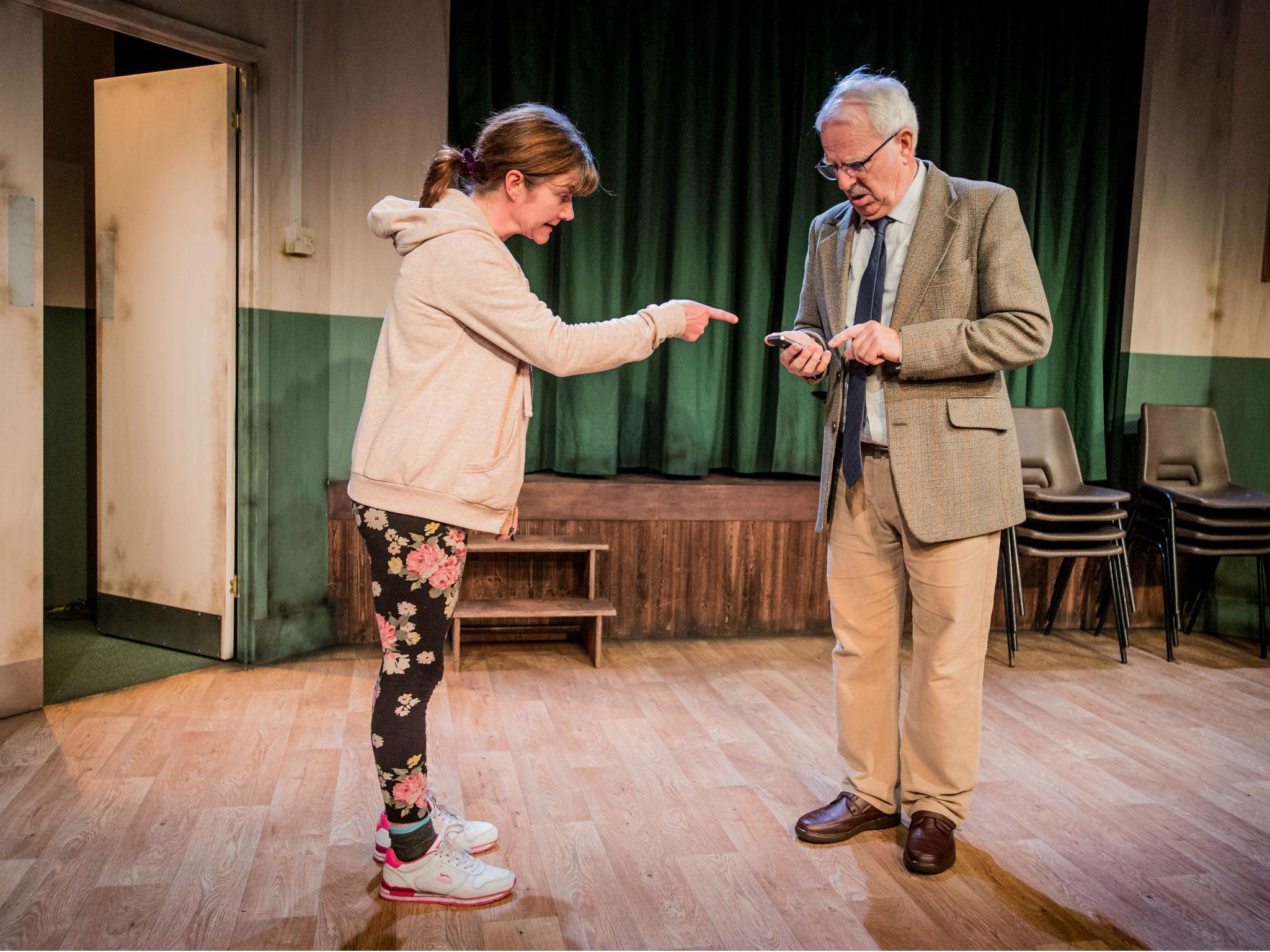Trestle, Southwark Playhouse, London, review: brimming with quiet insight and sympathetic humour
Stewart Pringle's 'Trestle' which explores love and ageing has a whiff of 'Last of the Summer Wine' and 'Last Tango in Halifax' about proceedings

Your support helps us to tell the story
This election is still a dead heat, according to most polls. In a fight with such wafer-thin margins, we need reporters on the ground talking to the people Trump and Harris are courting. Your support allows us to keep sending journalists to the story.
The Independent is trusted by 27 million Americans from across the entire political spectrum every month. Unlike many other quality news outlets, we choose not to lock you out of our reporting and analysis with paywalls. But quality journalism must still be paid for.
Help us keep bring these critical stories to light. Your support makes all the difference.
In an after-talk discussion, I once told a celebrated writer that what I loved about his new novel was that it was “never overweening”. “Do you mean that you found it 'underweening'?” he flashed back with mock-indignation. “No, no,” I scrambled to reassure him, “I find it 'weening' to just the right degree”. It's a compliment that I want to pay to Stewart Pringle's Trestle, the winner of this year's Papatango New Writing Prize. An 80-minute two-hander that makes eloquent use of a cleverly-angled formal constraint, the piece is perfectly proportioned to its material. It's a small-scale show but brimming with quiet insight and sympathetic humour as it explores the relationship between two characters who meet in the autumn of their lives.
The setting is a drab Temperance Hall in a small Yorkshire village. Harry, a sixtysomething widower, is chairman of the local “improvement” committee. Denise, of similar vintage, runs a Zumba fitness class in the same room straight after his meetings. There's a whiff of Last of the Summer Wine and Last Tango in Halifax about the proceedings but the piece has a strong theatricality because of the structure. In a succession of short scenes, we see the couple meeting in the few minutes of the changeover each week. The play gets its name from the unwieldy trestle table that they have to pack away umpteen times – an activity, performed with varying degrees of harmony, that comes to stand for the fluctuations in how they are feeling about each other. The course of a chequered, late-flowering friendship is traced through what is, effectively, a string of intervals. Apart from at one offstage party, the pair don't meet in other circumstances
Things get off to an awkward start, with Harry mistaking Denise for the cleaner. The next week she teases him that, seeing as it gave off a “cleaner” message, she's burned her coat: “Whoof! went up like a balloon. That's polyester for you.” Connie Walker's leggings-clad Denise has a lovely outgoing quality that's infectious and her character a shrewder understanding of the loneliness and other emotional privations that growing older can entail. Gary Lilburn's excellent Harry is a bit pompous and stiff in his civic dutifulness but lovable and flustered to find himself thawing out to emotions that his timetabled (but still rather bare) weekly routine has been designed to deny. The pair find plausible reasons for lingering over the few minutes they spend alone, sharing sandwiches (“That's demented. They're both spreads” declares Harry, miffed to be test-chewing her decorum-infringing “pickle and pesto” number), chatting about her book group and his deceased wife's garden and reconciling, with a clumsy grace, after the discovery of things about their outer lives and divergent needs that cause dismay.
Trestle has real gift for building character – and for intimating a sense of the forlorn – through an accumulation of tiny, often tragicomic details. Take Harry's gavel which Denise assumes must have been a present from his committee but which it turns out he bought on ebay and has never managed to bang once. The play attractively eschews Big Statements, while giving due weight to the row about nimby-ism which leaves them both chastened after she attends one of the meetings and, to Denise's distress, Harry thinks he has a proprietorial right to an opinion on the rest of her private life. Cathal Cleary directs with a terrific rhythmic feel for the expert variations of emphasis in the scenes and to their different angles of incidence. I don't see how Lilburn and Walker could capture the bittersweet chemistry better. It's not every prize-winning play that comes across as an unassuming labour of love.
Until 25 November (southwarkplayhouse.co.uk)
Join our commenting forum
Join thought-provoking conversations, follow other Independent readers and see their replies
Comments